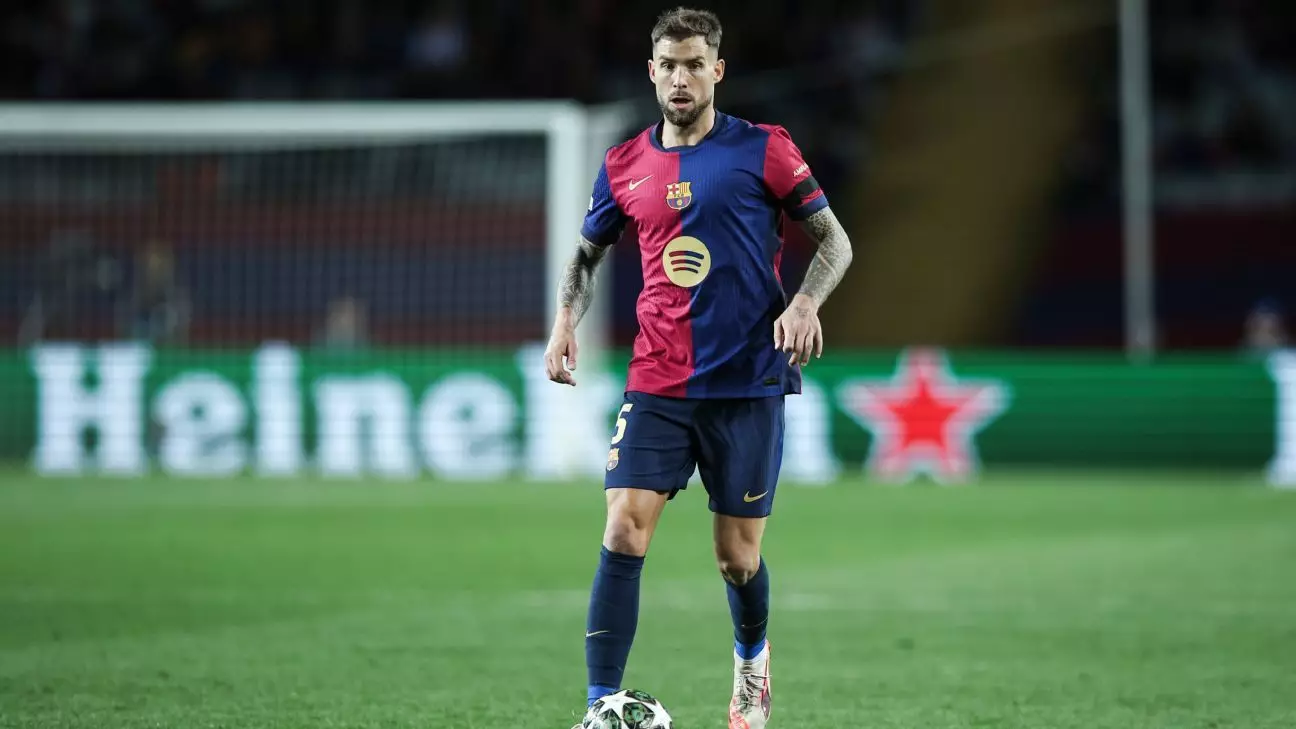In a riveting chapter of LaLiga drama, Osasuna’s assertion that Barcelona fielded an ineligible team—specifically by including Iñigo Martínez in their lineup—has been met with significant scrutiny. The match on March 27 ended in a convincing 3-0 victory for Barcelona, which only intensified the controversy. Osasuna, still grappling with their place in the league, promptly filed an appeal with the RFEF (Spanish Football Federation) after the match, claiming Barcelona’s actions breached FIFA regulations.
FIFA’s rules dictate strict protocols regarding player eligibility in the wake of international duty. A player called up for national service may not represent their club during the period they were expected to play for their country. Given that Martínez withdrew from the Spanish squad due to a knee injury just before the match against Osasuna, this situation brought the interpretation of those rules into sharp focus. Osasuna contended that playing him just four days after Spain’s UEFA Nations League match against the Netherlands was a violation worth contesting.
A Quick Turnaround
The essence of the dispute lies not merely in regulations, but in timing and the subsequent decision-making of the governing bodies involved. Many fans and analysts have been left wondering why Osasuna’s appeal was made in the first place, given that Martínez had officially pulled out of the national team due to a legitimate concern—a knee injury. The RFEF soon cleared Barcelona, stating the protocols were followed and Martínez’s selection was legitimate.
The situation casts a light on the nuances inherent in football regulations. The fact that a LaLiga match can be rescheduled further complicates the implications. This instance emphasizes the often gray area within which football operates, balancing player welfare with the competitive integrity of the league. How should governing bodies respond to appeal claims that stem from a legitimate injury?
Osasuna’s Last Resort
In a show of tenacity, Osasuna announced intentions to pursue a further appeal following the rejection of their initial claim. This reflects a broader trend seen in modern football, where clubs are increasingly willing to challenge decisions made by governing bodies. However, this determination raises questions: Is it a healthy level of competition, or does it straggle into realms of desperation?
With Osasuna sitting precariously in 13th place, the potential ramifications of an appeal outcome loomed large. The possibility that the points from this match could be awarded to them would significantly improve their standing as they attempt to distance themselves from the relegation battle. Too often in football, especially in leagues with relegation, teams feel driven to fight even the smallest battles where vested interests are involved.
The Perspective of Barcelona
From Barcelona’s perspective, the resolution of this dispute does not merely hinge on regulations and appeals; it is also about team dynamics and performance. Coach Hansi Flick’s commendations of Martínez highlight his substantial impact on Barcelona’s season. Martínez embodies leadership and resilience—qualities that contribute not only to defensive efforts but also the team atmosphere as a whole. His ability to adapt to the strategic demands of the game has drawn praise and positioned him as a pivotal figure for the club.
Flick’s focus on Martínez can be interpreted as a way to boost morale and reinforce confidence within the squad. By shining a spotlight on a player who has managed to excel even amidst controversy, he aims to fortify team unity and inspire other players to reach similar heights.
The Bigger Picture
The controversy over Martínez and Osasuna’s claim highlights the continuous evolution of sports governance. This saga has exposed the intricacies of rules governing eligibility while providing a platform for a broader conversation on how teams navigate the complexities of rule interpretations and competitive strategies.
As football continues to evolve, clubs like Osasuna might find that rather than appealing decisions after defeats, they might focus on strengthening their squad’s capacity to withstand such challenges. Conversely, heavyweights like Barcelona must remain vigilant, ensuring that their tactics both on and off the pitch align with the evolving norms and expectations of football governance. The aftermath of this incident could reshape approaches to player eligibility, governance, and even the integrity of leagues as a whole.

